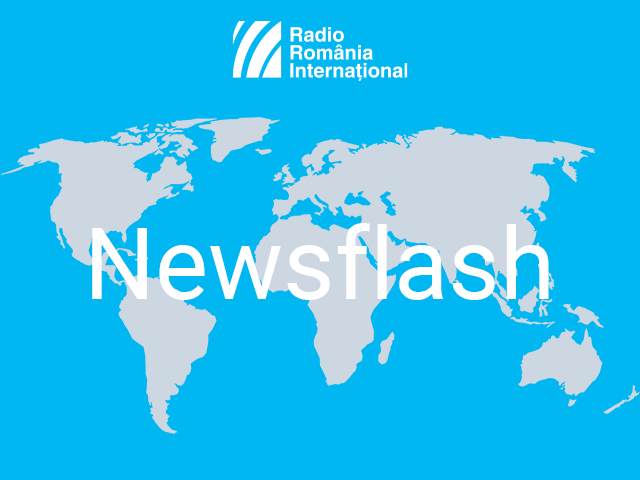March 19, 2022 UPDATE
Click here for a roundup of domestic and international news

Newsroom, 19.03.2022, 19:32
PANDEMIC Several
European countries are bracing themselves for what could be a new wave of the
Covid-19 pandemic. In France, Britain, Italy and Austria the number of
infections has doubled since last week. The new surge of Covid-19 infections is
due to the Omicron sub-variant BA2, which is more infectious than BA1.
According to WHO, although more transmissible, BA2 isn’t more dangerous than
the first sub-variant. Many countries have eased restrictions as research shows
that Omicron-infected patients are 59% less likely to need hospital care than those
infected with Delta and this sub-variant is 69% less likely to cause death. The
number of infections has been on the rise in South Korea, Vietnam and China;
the latter has announced its first two Covid-related fatalities while the
country is presently grappling with its worst spate of infections since the
coronavirus first emerged more than two years ago in its central regions.
ENERGY Electricity and gas prices will be capped for a year
starting April, under a new emergency ordinance the government in Bucharest
passed on Friday. So, household consumers who do not exceed 100 kilowatts per
month will be paying 0.68 lei per kilowatt, VAT included. For a consumption
under 300 kilowatts, the fee will be 0.80 lei per kilowatt at the most. Under
the new law, non-household consumers will be charged up to one Leu per
kilowatt, Romania’s Prime Minister Nicolae Ciuca says adding that the prices
for gas will be around 0.31 lei for household consumers and no more than 0.37
lei per kilowatt for non-household consumers. The measures are meant to offer
stability to both the citizens and the business environment, at the same time
being in accordance with the free market rules. The new measures will be
applied from April 1st this year until March 31st 2023.
Companies that fail to comply with the aforementioned rules are subject to
fines and the impact of the new measures has been estimated at 2.9 billion
Euros by the end of the year.
COVID-19 3,160 new Covid-19 infections were reported in Romania on Saturday.
44 related fatalities were also reported and the number of those hospitalized
has reached 3,120 out of whom 465 in ICUs. The number of infections has been on
the rise since Romania gave up all the prevention measures on March 9th.
RUGBY Romania’s national fifteen on Saturday secured a 38-12 win
against the Netherlands in Amsterdam in the last leg of Rugby Europe
Championship 2022 and will further play in the qualifiers for World Cup 2023 in
France.
UKRAINE Ukrainian president Volodymyr Zelensky on
Saturday made an appeal to Moscow to resume talks on peace and security in the
region, because otherwise the consequences for Russia are to be felt by several
generations, France press reports. Several rounds of peace talks have been
staged since Russia commenced its onslaught on the neighboring Ukraine on
February 24th. In another move, Zelensky announced the Ukrainians
who got relocated because of the war were going to get assistance. He explained
the ministers of the Ukrainian government are working on a programme of
providing support to those who had to abandon their homes or flee the war. The
Russian army carried on its operations in the regions of Luhansk in the east of
Ukraine, where many people were killed and houses destroyed. Russian war planes
on Friday destroyed 69 military targets in Ukraine including three S-300
anti-aircraft defence units, the Russian Defence Ministry has announced.
According to the US Department of Defence, since the beginning of the invasion,
Russia has launched over 1,080 missiles against Ukraine. 3.2 million Ukrainians
have left the country, two thirds of them arriving in Poland, which is just a
stopover during their exile.
REFUGEES Six working groups will be set up at government level
in Bucharest for a better handling of the situation of the Ukrainian refugees
who may choose to stay in Romania. Four of these are dealing with issues
related to health, education, access to the labour market and accommodation.
The other two will deal with those vulnerable, children and young people. The total
number of Ukrainian refugees who have made it to Romania in the past three
weeks since the beginning of the conflict has almost reached half a million. However,
very few of them applied for asylum and only about 80 thousand have chosen to
remain in Romania. According to official data, 32 thousand of them are minors
and accommodation facilities have been occupied 70%. Authorities and civil
society are making efforts to provide proper accommodation conditions, food,
medical assistance and education for their children. A lot of companies have
come up with job offers for the refugees. The European Commission has decided
to earmark special funds to Romania in an attempt to enable the country to cope
with the large number of refugees.
(bill)




























